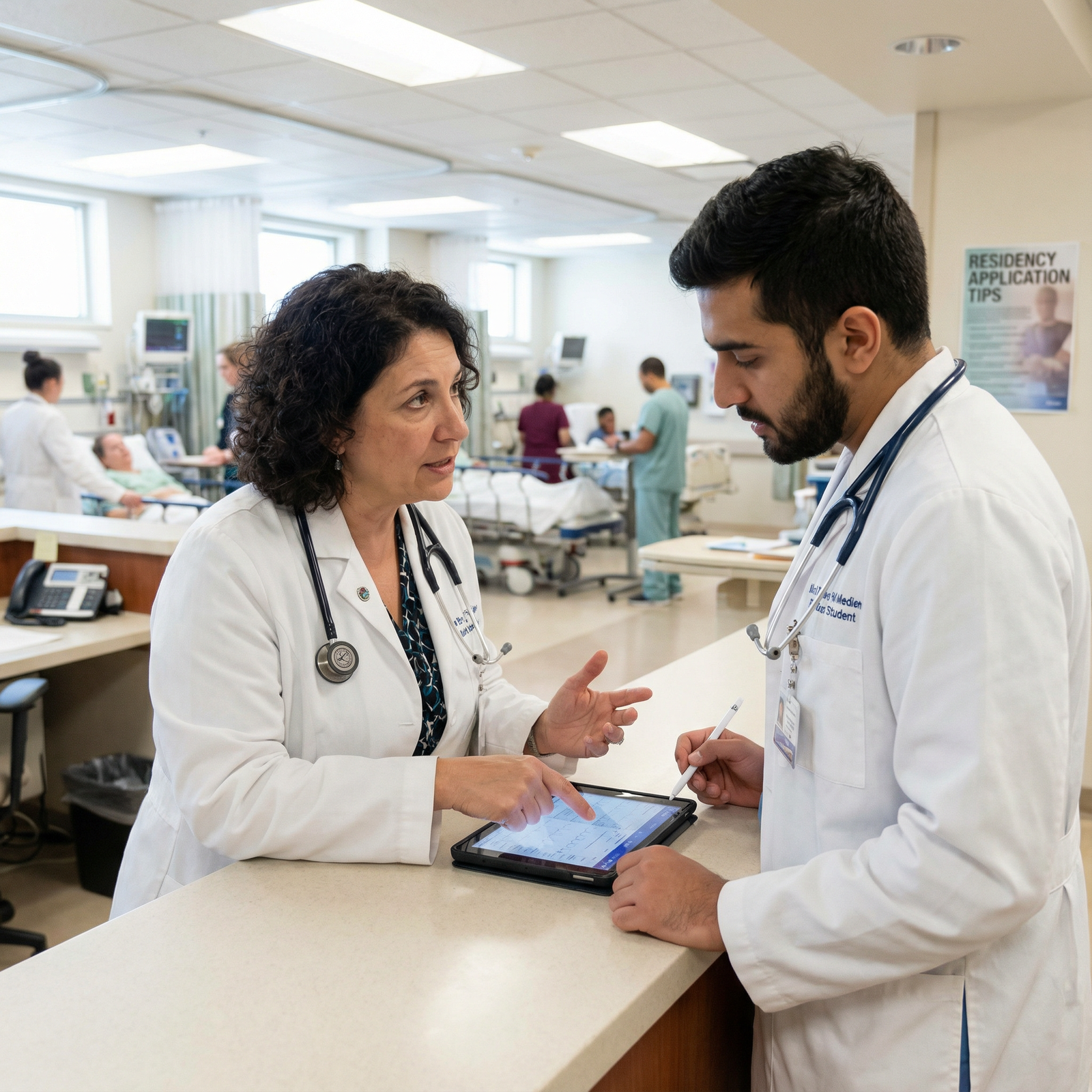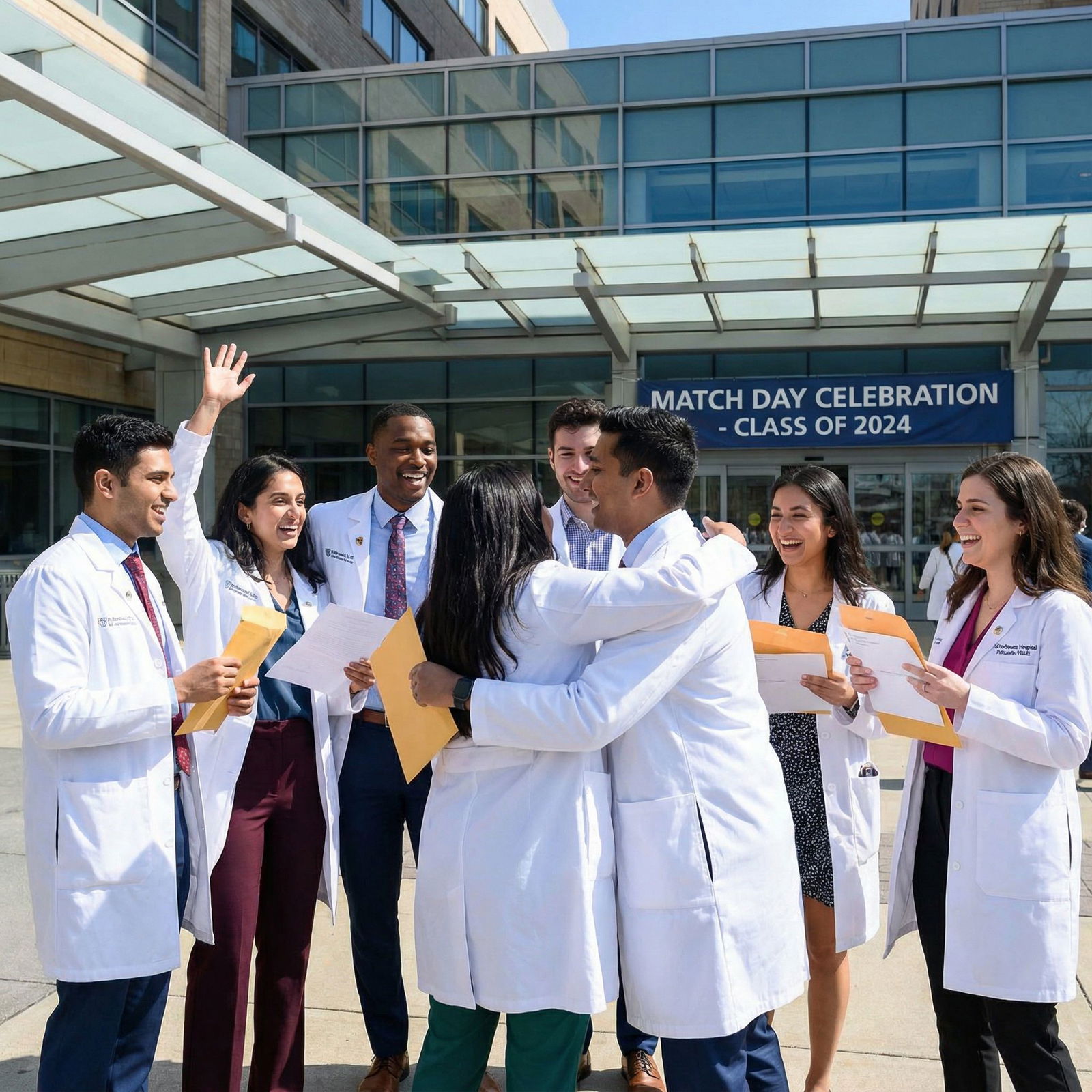
Every residency cycle, strong candidates are rejected from programs not because they lack potential, but because of preventable application mistakes. In an increasingly competitive Match environment, avoiding these errors is just as important as showcasing your strengths. Your residency application is the bridge between medical school and your future medical career—how you build it matters.
Below is a detailed guide to the most common and damaging residency application mistakes, how they undermine your match potential, and specific strategies to avoid them. Use this as a checklist and planning tool as you move through the ERAS/Match timeline.
Understanding the Modern Residency Application Landscape
Before diving into specific application mistakes, it’s important to understand the context you’re applying in. The residency application process is more complex and competitive than ever, and misjudging this landscape can quietly sabotage your Match prospects.
The Rising Competitiveness of the Residency Match
Over the past decade, the number of residency applicants has steadily increased—driven by larger medical school classes, more international medical graduates (IMGs), and applicants applying to more programs per specialty. While the total number of positions has grown, demand often still outpaces supply in many fields.
Residency program directors must rapidly screen hundreds (sometimes thousands) of applications each season. This reality shapes how your application is reviewed:
- Programs often use filtering criteria (e.g., USMLE score cutoffs, visa status, graduate year) just to reduce volume.
- Once past filters, reviewers look for clear fit, professionalism, reliability, and trajectory.
- Small errors or vague applications can quickly push an applicant into the “no interview” pile, even if they are otherwise qualified.
Understanding this context underscores why avoiding application mistakes is critical for maximizing your Match potential.
What Program Directors Actually Look For
While each specialty and program has its nuances, the following components consistently carry substantial weight in residency selection:
- Letters of Recommendation (LORs) – Especially specialty-specific and from faculty who know you well.
- Personal Statement – Your narrative, motivation for the specialty, and evidence of insight and maturity.
- USMLE/COMLEX Performance – Step 1 transitioning to Pass/Fail has shifted emphasis toward Step 2 CK.
- Clerkship and Sub-I Evaluations – Clinical performance and professionalism.
- Experiential Background – Research, leadership, quality improvement, teaching, advocacy, and meaningful extracurriculars.
- Interview Performance – Professionalism, communication, and fit with the program’s culture.
- Red Flags – Gaps in training, professionalism issues, multiple exam failures, unexplained anomalies.
Many “fatal errors” happen not because of one weak component, but because of how these factors interact and are presented. The goal is not perfection—it’s clarity, consistency, and professionalism across your entire application.
Fatal Application Mistake #1: A Generic or Poorly Written Personal Statement
Your personal statement is one of the only places in the residency application where you can speak directly to program directors in your own voice. Yet many applicants submit:
- Essays that could belong to any specialty
- Statements filled with clichés (“I have always wanted to help people”)
- Narratives that are confusing, overly dramatic, or unfocused
- Error-filled or poorly edited documents that raise professionalism concerns
Why a Weak Personal Statement Hurts You
Program directors use the personal statement to:
- Understand why you chose this specialty
- Assess your self-awareness and maturity
- Get a sense of your communication skills
- Evaluate whether your story and goals fit their training environment
A vague, generic, or sloppy statement can suggest lack of insight, poor communication, or minimal genuine interest in the specialty.
How to Write a Strong, Specialty-Focused Personal Statement
1. Tell a focused, believable story
- Choose 1–2 key experiences that truly shaped your interest in the specialty.
- Explain what you learned, not just what you did.
- Link your past experiences to the qualities needed in your field (e.g., attention to detail in pathology, calmness under pressure in emergency medicine, longitudinal care in family medicine).
2. Show, don’t just state
Instead of:
“I am a hard worker and a team player.”
Try:
“During my internal medicine sub-internship, I consistently arrived early to pre-chart and stayed late to follow up on pending consults, which allowed me to better support my team and advocate for patients during rounds.”
3. Align your goals with the specialty
- Briefly outline your career goals: academic vs. community, research vs. clinical focus, specific populations or interests.
- Show you understand the realities of the field (e.g., night shifts, emotional burden, complexity).
4. Maintain professionalism and clarity
- Avoid overly graphic stories or melodrama.
- Keep length to about 650–850 words—long enough to be meaningful, short enough to be readable.
- Have multiple trusted reviewers (advisors, residents, writing center) review for clarity, tone, and grammar.
5. Adapt for different specialties when necessary
If you’re applying to more than one specialty, write separate personal statements that reflect a sincere and tailored interest in each. Never send a “one size fits all” essay.
Fatal Application Mistake #2: Weak, Late, or Generic Letters of Recommendation
Letters of Recommendation can significantly influence your Match outcome. A strong, specific letter from someone who truly knows your work is far more powerful than a generic letter from a “big name” who barely interacted with you.

Common LOR Mistakes
- Asking for letters from faculty who barely know you
- Requesting letters too late, resulting in rushed or missing LORs
- Not providing letter writers with key information (CV, personal statement, specialty interests)
- Failing to collect enough specialty-specific letters (e.g., IM letters for internal medicine, surgery letters for general surgery)
Strategies for Strong, Impactful Letters
1. Choose letter writers strategically
Prioritize:
- Faculty who directly supervised your clinical work
- Attendings in your chosen specialty
- Mentors who can speak to your growth, resilience, and professionalism
If possible, secure at least:
- 2–3 specialty-specific letters for your primary specialty
- 1 additional letter from research, leadership, or a different clinical rotation that highlights complementary strengths
2. Ask in a professional, targeted manner
When requesting a letter, ask:
“Would you feel comfortable writing a strong, supportive letter of recommendation for my [specialty] residency application?”
This phrasing gives faculty an opportunity to decline if they cannot write a strong letter.
3. Provide supporting materials
Help your writer by sharing:
- Your CV
- A draft of your personal statement
- A brief summary of your work with them (projects, patients, specific feedback)
- Your ERAS ID and submission deadlines
4. Start early and follow up respectfully
- Identify potential writers 3–6 months before applications open.
- Send a gentle reminder 3–4 weeks before the deadline if the letter isn’t uploaded.
- Always thank your letter writers and keep them updated about your Match outcome.
Fatal Application Mistake #3: Poor Timeline Management and Missed Deadlines
Even excellent applicants can lose interviews because of late or incomplete applications. Many programs begin reviewing applications as soon as ERAS opens and may start offering interviews within weeks.
How Timing Affects Your Match Potential
- Early applicants are more likely to be reviewed thoroughly.
- Late applications may be reviewed only after interview slots are largely filled.
- Missing supplemental materials or delayed LORs can lead to your file being temporarily or permanently set aside.
Building a Residency Application Timeline That Works
1. Map out key dates at least 6–9 months in advance
Include:
- ERAS opening and submission dates
- MSPE (Dean’s Letter) release
- USMLE/COMLEX Step exam dates and score release windows
- Away rotations / audition rotation periods
- Program-specific deadlines (for certain specialties or tracks)
- Rank order list certification deadline
2. Front-load as much as possible
Aim to:
- Finalize your personal statement 2–3 weeks before ERAS opens.
- Have all LOR requests submitted by early summer.
- Take Step 2 CK early enough that scores are available by early application review.
3. Use tools to stay organized
- Digital calendars with alerts
- Project management apps (e.g., Trello, Notion, Asana)
- Shared checklists with accountability partners or advisors
Treat this like a major clinical project—you’re the project manager.
Fatal Application Mistake #4: Inadequate Research on Programs and Poor “Fit” Presentation
Applying to residency programs without understanding them is a common and costly error. Program directors quickly recognize generic applications that could have been sent anywhere.
Why “Fit” Matters
Programs are not just looking for strong applicants—they are looking for the right residents for their specific environment. Poor fit signals might include:
- Personal statements that conflict with the program’s mission (e.g., strongly academic focus for a community-based program with minimal research)
- Ignoring important program features (rural focus, underserved populations, specific patient mix)
- Applying to extremely competitive programs without realistic alignment of credentials
How to Research Programs Strategically
1. Use multiple sources
- Official program websites (curriculum, call schedules, resident list, fellowship outcomes)
- FREIDA and specialty-specific resources
- Virtual or in-person open houses
- Alumni or current residents from your medical school
- Social media accounts maintained by programs (Twitter/X, Instagram, LinkedIn)
2. Identify your own priorities first
Clarify what matters most to you:
- Geographic preferences or constraints
- Academic vs. community training
- Research infrastructure and scholarly support
- Patient populations (urban, rural, underserved, subspecialty-heavy)
- Fellowship match record
- Program size and culture
Then assess how well each program aligns with these priorities.
3. Tailor your application materials where possible
While ERAS limits customization, you can:
- Mention program characteristics that genuinely resonate with you in your personal statement (for select top-choice programs).
- Reference key themes in interviews (patient population, educational structure, wellness initiatives, mentorship structures).
- Show that your experiences and goals align with the program’s mission and strengths.
Fatal Application Mistake #5: Underestimating the Impact of USMLE/COMLEX Performance
Even as residency selection becomes more holistic, exam performance still plays a substantial role, particularly for initial application screening.
How Low or Borderline Scores Affect Your Application
- They may trigger automatic filters that prevent your application from being reviewed.
- Multiple attempts or failures can raise concerns about knowledge base or test-taking skills.
- For competitive specialties, even “average” scores may reduce interview offers.
Strategies If You Haven’t Taken Your Exams Yet
- Develop a detailed study plan months in advance.
- Use NBME practice exams or COMSAEs to gauge readiness.
- Seek help early if you’re struggling—tutors, academic support, or test-taking coaches.
- Time your exam so that a strong Step 2 CK score can enhance your application before submission.
Strategies If Your Scores Are Lower Than You Hoped
- Focus on maximizing your Step 2 CK if Step 1 is weaker.
- Strengthen other pillars of your application: strong clinical evaluations, impactful letters, research productivity, leadership and service.
- Consider a broader range of programs and specialties, including prelim or transitional year options where appropriate.
- Address any major testing issues briefly and maturely (e.g., in your MSPE or a short addendum if advised by your dean) rather than ignoring obvious red flags.
Fatal Application Mistake #6: Neglecting Meaningful Extracurriculars and Leadership
Residency programs want well-rounded physicians, not just test-takers. A thin CV with minimal involvement outside of coursework can hurt your application, especially in competitive fields.
What Programs Look For Beyond Scores
- Longitudinal commitment to causes (not just last-minute CV padding)
- Evidence of leadership, initiative, and teamwork
- Engagement in research, quality improvement, advocacy, or teaching
- Activities that reflect resilience, empathy, and professional growth
How to Build a Strong, Authentic Experiences Section
1. Prioritize depth over breadth
- A multi-year commitment to a free clinic, community initiative, or research project is often more compelling than 10 short, unrelated activities.
- Show progression: member → organizer → leader.
2. Translate experiences into residency-relevant skills
When describing experiences in ERAS:
- Highlight concrete responsibilities (“Supervised a team of 10 volunteers,” “Coordinated weekly clinic flow for 50+ patients”).
- Emphasize skills that transfer to residency: communication, organization, cultural humility, conflict resolution, systems-based practice.
3. Include non-traditional but meaningful experiences
If relevant and substantial, consider including:
- Prior careers (engineering, teaching, military, business)
- High-level athletics or arts
- Caregiving responsibilities (with appropriate discretion and framing)
- These can underscore maturity, life experience, and resilience when described professionally.
Fatal Application Mistake #7: Failure to Professionalize and Personalize Communication
How you communicate with programs—via email, ERAS messages, or interviews—sends a strong signal about your professionalism and interest.

Common Communication Pitfalls
- Mass-sending generic emails to dozens of programs
- Misspelling program names or addressing the wrong institution
- Overly casual or unprofessional language
- Excessive or inappropriate follow-up messages
- Failing to respond to program communications promptly
Best Practices for Professional and Impactful Communication
1. Keep emails concise, respectful, and specific
A strong inquiry email might include:
- Brief self-introduction (name, school, specialty interest)
- Clear reason for contacting the program (e.g., question about curriculum, clarification on visa policies)
- Specific reference to something unique about the program (e.g., global health track, simulation center, community outreach)
- Professional closing and email signature with contact information
2. Use personalized messages sparingly but thoughtfully
Consider personalized messages when:
- Reaching out to home institution programs
- Contacting programs in regions you have strong geographic ties to
- Thanking programs after interviews (if culturally appropriate in your specialty)
3. Always proofread
- Double-check spelling of names, program titles, and locations.
- Avoid emotional or impulsive emails; when in doubt, draft and re-read later.
Fatal Application Mistake #8: Rushing the Application and Overlooking Errors
Programs expect attention to detail from future residents. An application filled with typos, inconsistent dates, or missing components sends the opposite message.
How Sloppy Applications Undermine Your Candidacy
- Suggests poor organization or work ethic
- Raises concerns about your ability to handle documentation, orders, and notes in residency
- May lead to accidental omissions (e.g., missing LORs, incomplete experience descriptions) that materially weaken your file
Quality-Control Strategies Before Submitting ERAS
- Print or export your application and review it as if you were a program director.
- Check all dates, locations, and titles for accuracy.
- Ensure that each experience entry answers:
- What did you do?
- What was your role?
- What skills or lessons did you gain?
- Have at least one advisor or trusted mentor review your entire application.
- Build in buffer time—submit at least a few days before your personal deadline to allow for corrections.
Fatal Application Mistake #9: Ignoring Your Digital Footprint and Social Media Presence
In the digital age, your online presence is an extension of your professional identity. While not all programs search applicants online, some do—and problematic content can quickly become a red flag.
Risky Social Media Behaviors
- Posting unprofessional content (substance use, offensive jokes, disrespectful comments)
- Sharing patient information or photos that might violate HIPAA or confidentiality
- Publicly criticizing institutions, supervisors, or peers
- Using public profiles with unprofessional usernames or images
Professionalizing Your Online Presence
1. Audit your existing accounts
- Search your own name on major search engines.
- Review public-facing content on platforms like Instagram, Facebook, TikTok, Twitter/X.
- Remove or restrict access to anything that could be interpreted as unprofessional.
2. Consider building a positive professional footprint
- Create or update a LinkedIn profile with your education, research, and leadership experiences.
- For academic interests, consider a professional X/Twitter account focused on sharing research, advocacy, or medical education content.
- Ensure profile photos, bios, and posts reflect the level of professionalism expected of a physician.
Conclusion: Turning Avoidable Mistakes into Match Advantages
The residency application process is demanding, but it’s also a powerful opportunity to reflect on your journey and intentionally shape your medical career. Many of the most damaging “fatal errors” are entirely preventable with early planning, honest self-assessment, and meticulous attention to detail.
By:
- Crafting a focused, authentic personal statement
- Securing strong, timely Letters of Recommendation
- Managing your timeline strategically
- Researching and targeting programs thoughtfully
- Maximizing your exam and clinical performance
- Developing meaningful extracurricular and leadership experiences
- Communicating professionally and personally
- Carefully reviewing your application for accuracy
- Curating a professional digital presence
…you significantly enhance your match potential and present yourself as the kind of colleague and trainee programs are eager to work with.
The path to residency is challenging, but it is navigable. Approach it the way you approach patient care: with preparation, thoughtfulness, and attention to detail. Those habits will not only help you match—they will serve you throughout your medical career.

Residency Application FAQ
Q1: What is the single most important part of the residency application?
There is no single “most important” component for every program, but several elements consistently carry high weight:
- Specialty-specific Letters of Recommendation
- USMLE/COMLEX performance, especially Step 2 CK
- Clinical evaluations and MSPE
- A clear, well-written personal statement
Think of your application as a portfolio: any one strong component can help, but they are most powerful when they tell a coherent, consistent story about who you are as a future resident.
Q2: When should I start preparing my residency application?
Ideally, start 6–12 months before you plan to apply:
- 12 months out: Clarify specialty choice, plan rotations, identify potential letter writers.
- 6–9 months out: Begin outlining your personal statement; build your CV; deepen involvement in key activities.
- 3–4 months out: Request letters; finalize exam timing; draft and revise your personal statement.
- 1–2 months out: Enter ERAS data; polish experience descriptions; confirm program list with an advisor.
Earlier preparation gives you more flexibility if unexpected issues arise.
Q3: Is it okay to submit my application close to the ERAS opening date or official deadlines?
You should aim to submit as early as realistically possible once ERAS allows applications to be transmitted to programs. While you can technically submit later, doing so may:
- Decrease the likelihood that your file is reviewed before many interview invitations are sent.
- Limit your options at more competitive programs.
Submitting early with a complete, polished application is ideal. Don’t rush so much that quality suffers, but avoid waiting until the last possible day.
Q4: How should I decide whom to ask for Letters of Recommendation?
Choose letter writers who:
- Have directly observed your clinical work or research.
- Can speak to your work ethic, clinical reasoning, professionalism, and growth.
- Are within your target specialty when possible (e.g., internists for IM, surgeons for surgery).
- Have a reputation for being supportive of students and residents.
If you’re unsure, discuss your options with your faculty advisor or career counseling office before asking.
Q5: Do all residency programs require the same application materials?
Most programs require a similar core set of materials via ERAS:
- Common application form
- Personal statement
- USMLE/COMLEX scores
- MSPE (Dean’s Letter)
- Medical school transcript
- Letters of Recommendation
However, some programs or specialties may have additional requirements such as:
- Supplemental ERAS or specialty-specific applications
- Secondary essays or questionnaires
- Specific numbers or types of LORs (e.g., a Chair’s letter)
- Minimum score or graduation year cutoffs
Always check each program’s website and ERAS listing carefully and follow their instructions exactly.
For more in-depth guidance on avoiding application mistakes and strategically planning your medical career, continue exploring curated resources on residency applications, mentorship, and Match preparation. Thoughtful planning now will pay dividends for years to come.




















